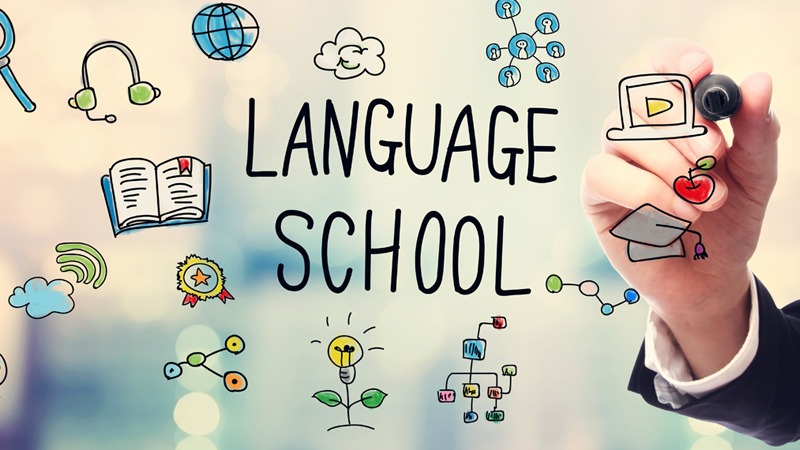English Language Arts is not a language, but it is the development of ideas that communicate. In kindergarten, each study is significant; each shows a specific ability in training, but Language Arts creates difficulties in understanding for an individual. Language arts are all elements of speaking, reading, and writing. Spelling bee game can be considered as a test platform for the learners.
SIX AREAS OF LANGUAGE ARTS
There are six components of language arts that are essential for students to develop over time.
READING
In the first stage, reading is easier, and interpreting words using phonic awareness is not a big deal but when the level increases, reading becomes complex and here, the student develops critical thinking.
WRITING
The linguistic skill of writing encourages students to express their feelings and opinions with others over time. They would have a critical component to take the ideas from their imagination and place them in a framework that can be checked by someone else and even reproduced if appropriate, from composing work emails to producing fantasy novels for fun.
LISTENING
Listening can help learners find sense and learn over time the latest words and concepts. They come to grasp things that were elusive in the past as they listen to terms and observe what’s going on all around her. Listening is a basic step for how to improve English.
SPEAKING
The power to manage our mouth, tongue, and voice to produce a sound that is heard by others includes speaking; but verbal communication is more than just speech. They put around terms and phrases into sentences as their expression grows, sometimes doing so on the spot, from sharing tales to voicing their views.
VIEWING
A most important part of learning language art is viewing in which learning is through the objects and colourful papers. Arts is added to the learning abstract to make them clear.
VISUAL COMMUNICATION
After viewing, students get able to communicate even visually. Nowadays, visual communication holds great importance and is itself a career in which numerous domains are available to choose.
WHAT ARE THE ESSENTIAL COMPONENTS THAT TEACHERS USE?
Following are the two essential components that instructor of English language Arts consider;
LITERATURE IS LIFE
Teachers discover what it means to be present and to be a person when they interpret creative fiction, whether literature, poem or comedy. Students improve learning about ourselves, others, and the universe. Teachers help students travel all over the world, move into the boots of other individuals to see the global community through their experiences, and much more.
ESSENTIAL HUMAN SKILLS
How to gather notification and how to exchange intelligence from others. This is alphabetism. Teachers collect data through reading and listening and relay information through communicating.
WHY IS IT IMPORTANT FOR CHILDREN?
This abstract holds great importance in the life of a student to develop the skills that are required in professional life too.
OWN INTERPRETATION
As instructors, the representations of scriptures must be vigilant and should not own them. The script should not be viewed as a puzzle that the instructor has all the solutions to (e.g., a list of themes and symbols). Rather, we should give our participants transcripts and ask students for their participatory reading of them.
STRONG FOUNDATION FOR ACADEMIC READING AND WRITING
Step response, reporting and conversational skills are the subjects of ELA courses. The competence of language arts is important to accommodate educational goals, early part with teaching phonemic awareness in the primary level and progressing to sophisticated analytical constructs in higher grades. All the key defining features of primary classes are intervals of silent continuous reading, cursive font, grammar, conceptual composing and comprehension.
SHARPENS CRITICAL THINKING
The basic layer by which students interpret knowledge is reflective practice so that they do not entirely believe whatever they read or hear. Before learners know how to speak, this capacity encourages them to perceive.
LEARN OTHER SUBJECTS
Students are advised to develop through various issues and a group of subjects and topics are required to be explored, criticised, and synthesised. As such, skills in the four dimensions of the ELA are key elements of each subject. Students are required to communicate, compose, and express what they have experienced regardless of subject material.
CRUCIAL FOR PROFESSIONAL LIFE BEYOND SCHOOL
The skills and expertise gained in the English Language Arts are required to motivate learners outside the classrooms for success. They help build skills of the 21st century: coordination, teamwork, innovation, and rational reasoning that are necessary for life in the future and professional major success.
It requires pupils to learn tales and fiction, as well as more complicated documents in science fields and political science which include information and context understanding Learners will be questioned and answered directly that force students to go through what they’ve learned. This emphasises critical-thinking, problem-solving, and analytical skills needed for college, career, and life success.
SPELL QUIZ
Another essential test program instead of the spelling bee is spell quiz which can be accessed here; www.SpellQuiz.com. This platform is essential where students can test their spellings ability.

